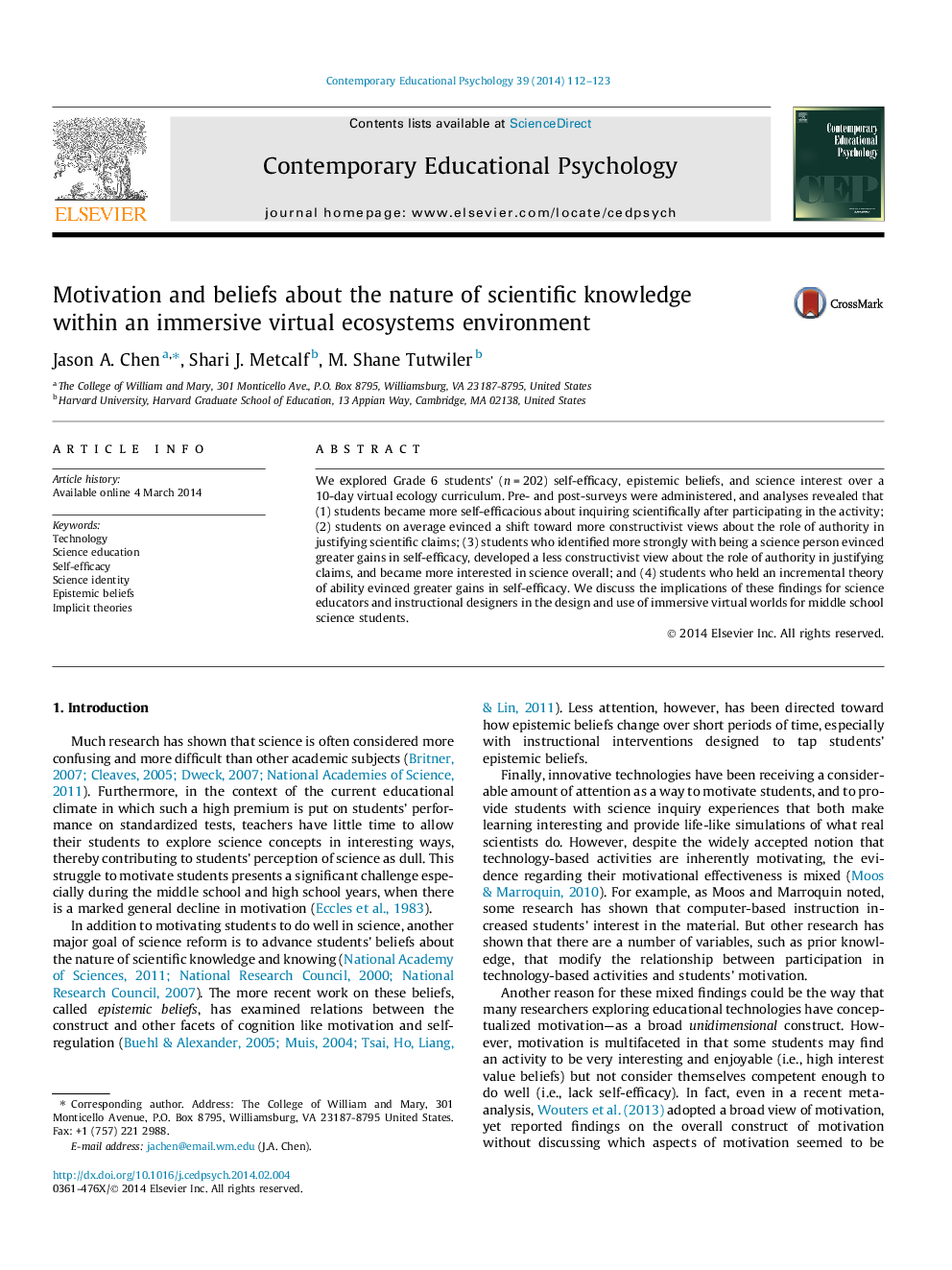| کد مقاله | کد نشریه | سال انتشار | مقاله انگلیسی | نسخه تمام متن |
|---|---|---|---|---|
| 352637 | 618606 | 2014 | 12 صفحه PDF | دانلود رایگان |
• Explored changes in self-efficacy, interest, and epistemic beliefs in virtual world.
• On average, students became more self-efficacious about scientific inquiry.
• Changes in beliefs about role of authority differed as function of science identity.
• Changes in science interest differed by science identity and implicit theories.
We explored Grade 6 students’ (n = 202) self-efficacy, epistemic beliefs, and science interest over a 10-day virtual ecology curriculum. Pre- and post-surveys were administered, and analyses revealed that (1) students became more self-efficacious about inquiring scientifically after participating in the activity; (2) students on average evinced a shift toward more constructivist views about the role of authority in justifying scientific claims; (3) students who identified more strongly with being a science person evinced greater gains in self-efficacy, developed a less constructivist view about the role of authority in justifying claims, and became more interested in science overall; and (4) students who held an incremental theory of ability evinced greater gains in self-efficacy. We discuss the implications of these findings for science educators and instructional designers in the design and use of immersive virtual worlds for middle school science students.
Journal: Contemporary Educational Psychology - Volume 39, Issue 2, April 2014, Pages 112–123
